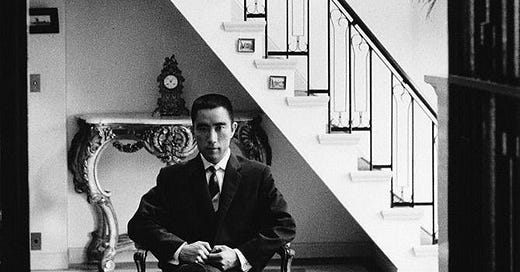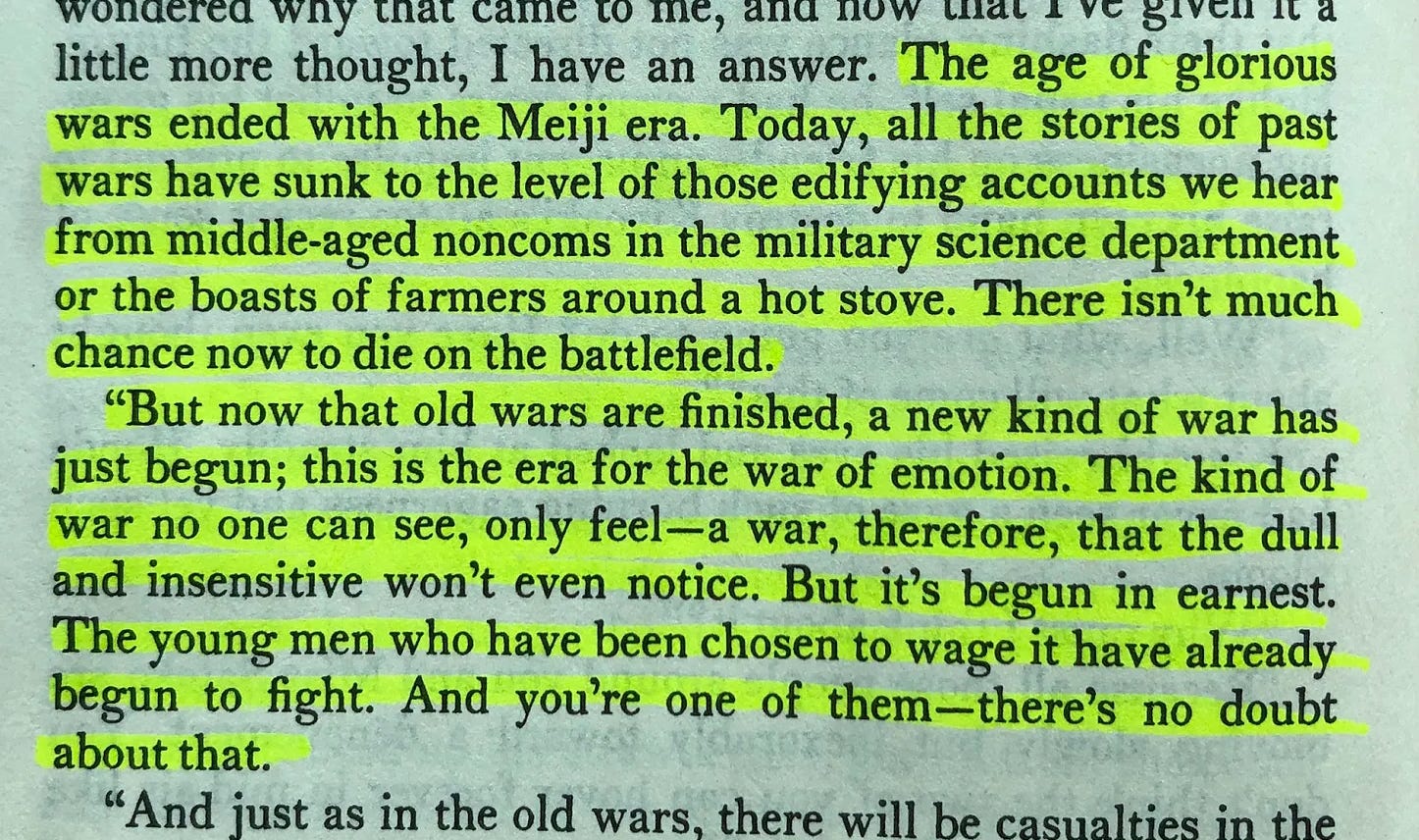I read Mishima’s Spring Snow, the first book in his tetralogy, the rest of which I am eager to read, since the first book was SO beautiful. I think the first thing to say about it is that it is deeply tragic and moving, on the high dramatic Shakespearean order.
It is about two young lovers, Kiyo and Satoko, whose love is doomed by Kiyo being a fucking idiot, which I relate to so hard. Satoko loves him and wants to be together but he is a dumbass fucking dude and spurns her, then a literal prince proposes to her; and then he wants to get together with her, and they start an affair behind the royal family’s back. It ends let’s just say horribly with Satoko getting herself to a nunnery, lol, I mean she goes to a convent after aborting Kiyo’s baby, and Kiyo dies of pneumonia while banging on the door of the convent, the Abbess REFUSING to let him see Satoko — I literally almost cried when I read this shit, but I never cry!—so I still did not.
*
One theme in Mishima's Spring Snow is the tension between peacetime and wartime. He meditates at length on the battles young men fight in their emotional lives, which replace the battles young men might fight in the real world. He sets his novel after the conclusion of the Russo-Japanese War (1904-5) and has his protagonist — an effete, beautiful boy, with perfectly white unsullied skin, fight an emotional battle that leads to his ultimate death; death precisely from socializing and falling in love. It is unclear to me whether Mishima — who later in life was renowned for his martial attitude — is advocating for a more warlike society, or whether he thinks that emotional battles are just replacements for physical ones. Is he arguing that there should be no more war, and people should focus on their emotions? — or that people are wasting away because there is no more war, and they have become weak, concerned with trifles? The text, to me, does not reveal a precise answer; only an interesting question.
There are no more physical frontiers to explore. There are no more glorious wars of conquest for writers to catalogue. Only regional conflicts and mutually assured destruction. Only the same physical territory that has already been discovered to revisit. The novelist should instead focus on the internal battles of the emotions. The human psyche has only begun to be explored and conquered.
*
Beauty Toward Death
One day, Kiyo sees a shiny black beetle crossing his window sill, glistening black as the sheer white drapes flutter around it. "When traversing a world of unceasing flux, the only thing of importance was to radiate beauty.” Kiyo meditates on the squalor and impermanence of the beetle, yet it is beautiful, like a radiant black gem that eats shit and dies fast.
It is Kiyo’s mirror. Kiyo’s skin is immaculate white and totally unsullied. His hands, his body are perfect. He is the paragon of human beauty, as is his lover Satoko. But he is wasting away in the beauty and luxury of his elite life. His life is vapid, but for love, and Mishima rips this sole important thing out of our protagonist’s hands. He and Kiyo are rent asunder, she to a convent, he to the afterlife (banging on her door, refused an audience).
He is dead by 20, having lived a short, horrible, blind, beautiful life.
Portrait of Mishima. Tadahiko Hayashi, CC BY-SA 4.0 <https://creativecommons.org/licenses/by-sa/4.0>, via Wikimedia Commons






"literally almost almost cried [...] but didn't" -- was reading the book an an internal battle of emotions in itself?